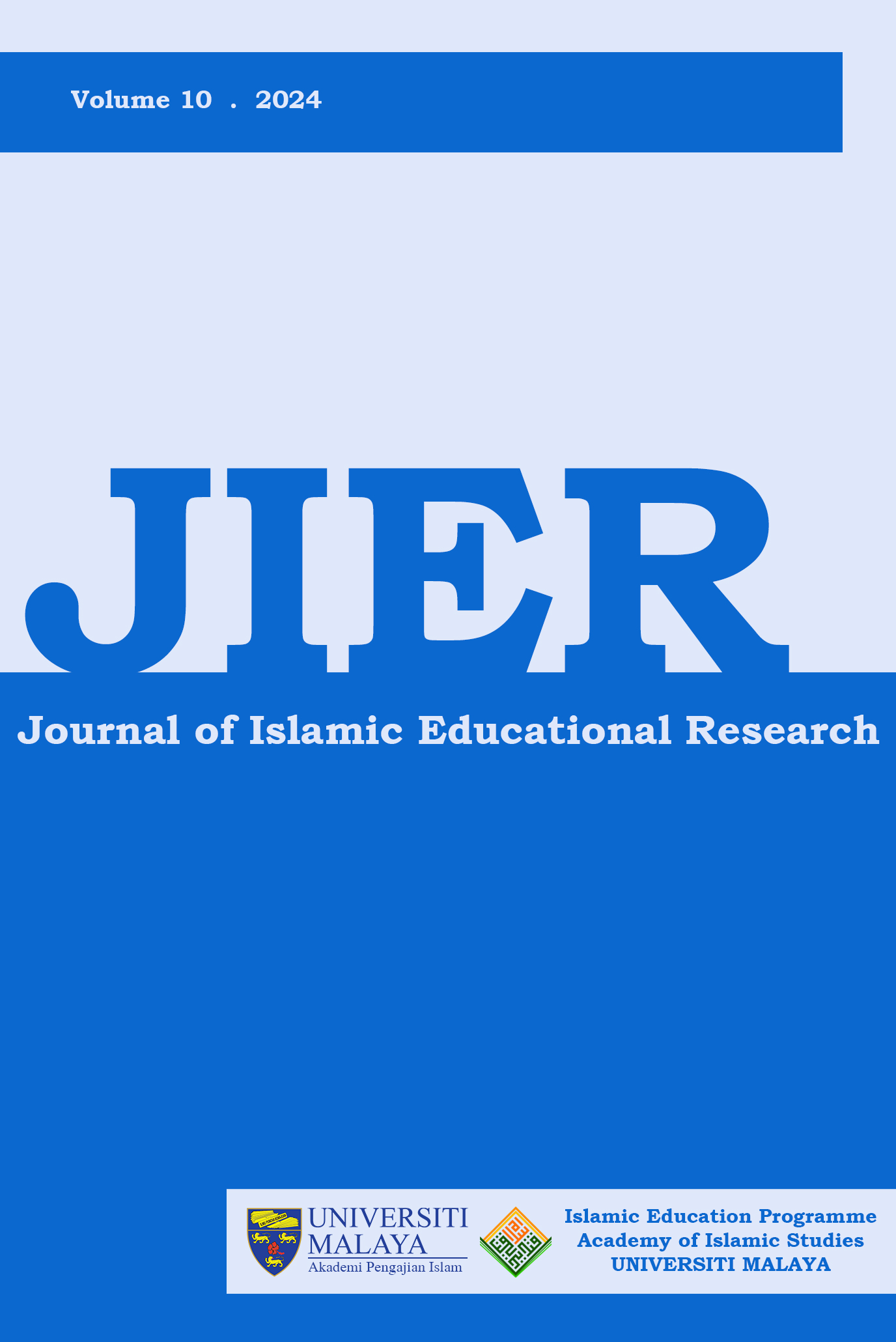Advancing Islamic Education with Game-Based Learning: Principles, Effects, And Implementation Obstacles
DOI:
https://doi.org/10.22452/jier.vol10no1.1Keywords:
Game-based Learning, Islamic Education, Student Involvement, Qualitative Research, Pedagogical PrinciplesAbstract
This study examines the incorporation of game-based learning (GBL) within Islamic educational contexts, focussing on the alignment of GBL with Islamic pedagogical principles and its effects on student engagement and learning results. A qualitative research design was utilised, encompassing document analysis and focus group talks. The document analysis examined literature and educational resources pertaining to both Game-Based Learning (GBL) and Islamic education, while focus group conversations with educators from Islamic schools offered insights into their experiences and perceptions of GBL. The results demonstrate that GBL is congruent with various Islamic educational principles, including self-reflection and feedback, individualised learning, incremental learning, and cooperative learning. Educators indicated that game-based learning substantially boosts student enthusiasm and enhances academic performance. Nonetheless, problems including resource limitations, curriculum alignment, and the necessity for professional development were recognised. Recommendations for successful integration encompass the creation of game-based learning materials specifically designed for the Islamic setting, offering training for educators, and tackling resource constraints. This study emphasises that the incorporation of Game-Based Learning (GBL) into Islamic education presents a viable method for improving educational experiences, contingent upon the resolution of implementation challenges and adherence to Islamic standards.
Downloads
Downloads
Published
How to Cite
Issue
Section
License
The published manuscript shall be a copyright of the Islamic Education Programme, Academy of Islamic Studies, University of Malaya, Kuala Lumpur, Malaysia. The published manuscript would not represent the stand or opinion of the Advisory Board, Editorial Board, Co-Editorial Board and the Management Team of Journal of Islamic Educational Research (JIER), or the Islamic Education Programme, Academy of Islamic Studies, University of Malaya.
Note: This is an open access journal which means that all content is freely available without charge to the user or his/her institution. Users are allowed to read, download, copy, distribute, print, search, or link to the full texts of the articles in this journal without asking prior permission from the publisher or the author. This is in accordance with the BOAI definition of open access.






